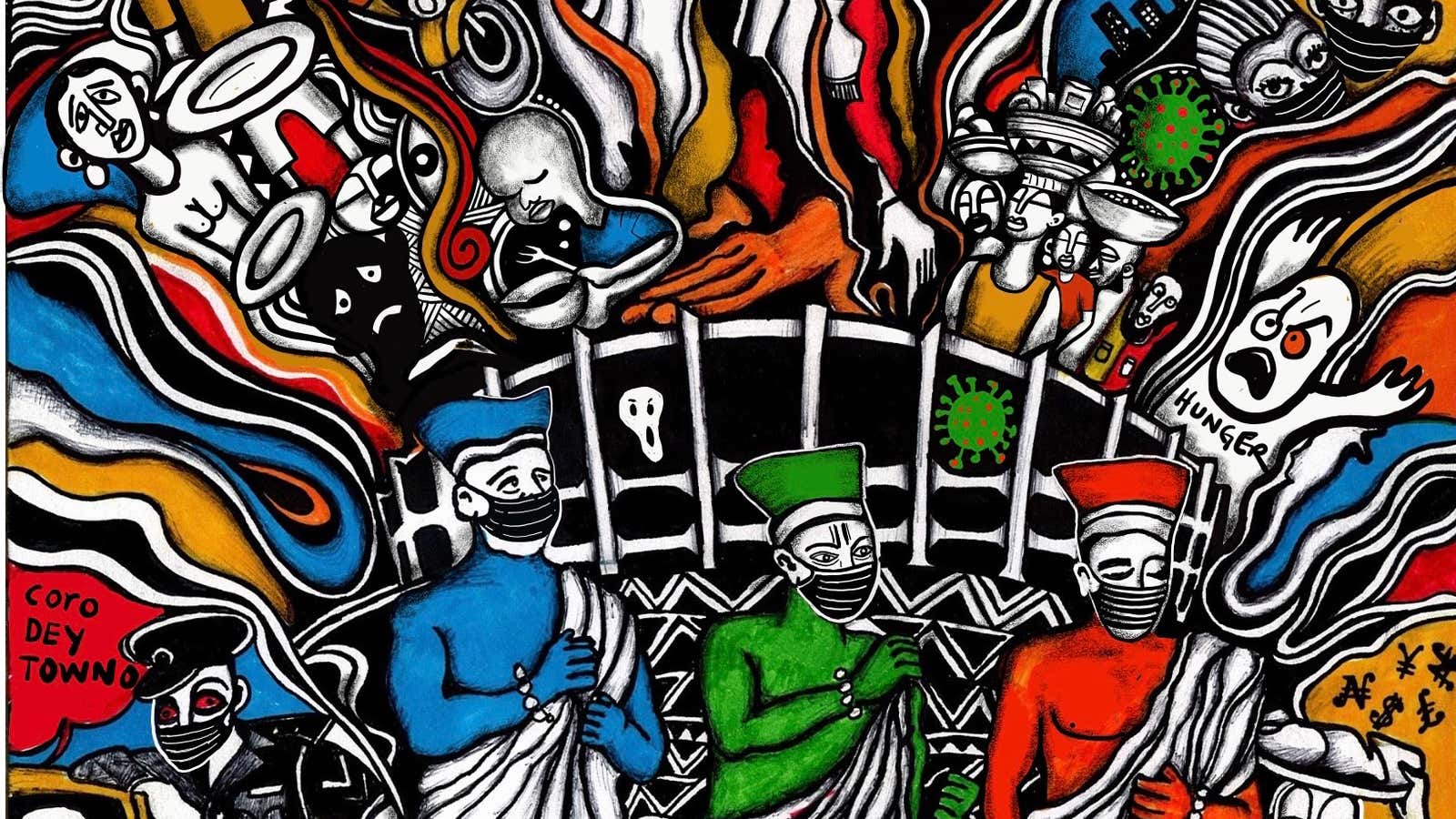When the coronavirus first began galloping around the world, many thought the virus would be a great global equalizer. For once, countries and regions around the world would be on equal footing as all faced the same uncertainty, and the same disease. With a common enemy attacking human bodies regardless of ethnicity, race or creed, we’d all fight together, or so this line of thinking went.
We quickly saw the cracks in this idealistic thinking begin to form when US president Donald Trump and many of his supporters began to put a literal face on the virus, calling it the “China virus.” But even that was only a more callous representation of deeper, subtler trends whose effects were more insidious, and possibly more damaging, to the world’s most vulnerable populations.
One particularly notable phenomenon to emerge was the homogeneity of the approaches developed to fight the virus, regardless of geographic, economic or cultural contexts. These efforts, though well-intentioned, were bound to fail. But, worryingly, they may have done more harm than good. Going forward, we need to re-think approaches, factoring in global differences and inequalities, if we hope to mitigate or stave off future crises.
In my home country, Nigeria, a desperate population was prescribed measures meant for—and created by—wealthy Western nations as the only way to combat the spread of the virus. Social distancing became the global battle cry of the fight against coronavirus. Frequently the word “just” was appended to the slogan. “Just stay home,” we were told. But for millions of people across Africa, that four letter word contained an agonizing dilemma. Wage earners who live hand to mouth had to decide between the possibility of dying from the virus and the certainty of dying from hunger.
This became clear to me a few weeks into the fight against the pandemic. While I now live in New York, I still keep close contact with my network of friends and family in Nigeria so I began reaching out to see how Nigerians were coping not just with the virus, but with the stay-at-home directives that threatened their livelihoods and, by virtue of that, their very lives.
Again and again, I heard a chilling refrain. Trapped in their homes, and with their ability to earn money curtailed, Nigerians were talking not about the coronavirus but what they had started calling the “hunger virus.” Families who live on the very thinnest razor edge of poverty were being sliced apart by the very real specter of starvation. While we who live in global financial centers spoke about economic pain in terms of a decade’s worth of stock market gains being wiped out, for Africans the pain was a physical suffering of not having enough to eat.
We don’t yet know what kind of human toll this policy exacted on populations like Nigeria’s. How many elderly people died from not having enough money to buy medicine? How many infants went without milk? How many other countless illnesses went untreated? As we emerge from the pandemic, we will have to reckon with these realities, and the tragedies they may have precipitated.
What we do need to take from this experience is the lesson that it’s not one we can repeat. For decades, Africa has been learning that Western approaches—to economics, medicine, social cohesion, and even art—are not always suitable for the continent. In some cases, we’ve found Western ideas to be inimical to our prosperity, even our survival.
This is not to say Africa does not need Western cooperation. And it’s certainly not a call for isolationism of any kind. To the contrary, the West and Africa need to develop collaborative approaches to crises like the coronavirus so when the next crisis (be it economic, political, social, or health-related unrest) strikes, we can create policies and frameworks that leverage the strengths of African societies and ways of life, rather than strain their weakest points.
In many ways, coronavirus has provided the world a lens with which to see itself. Like a banking system stress test, it showed us where we, as individuals, as a society and as a planet, have gone wrong. With the earth taking a visible breath, it’s pointed out the environmental impact of non-stop commerce. It’s shown us how racism can flare at any moment, even the seemingly least likely. But it’s also demonstrated how we can improve, who our true heroes really are, and what a better and more equitable future looks like.
We need to embrace this moment. And we can do that by bringing open minds and empathetic hearts to policy and planning for our world’s most urgent matters. Without this human element, we will never be able to make the kind of progress we need to meet the challenges of a globe characterized by unfathomable complexity and blinding speed. But with it, our efforts will resemble not a chain constrained by its weakest links but a network whose strength increases exponentially as it grows in size and increases in diversity.
Sign up to the Quartz Africa Weekly Brief here for news and analysis on African business, tech and innovation in your inbox
